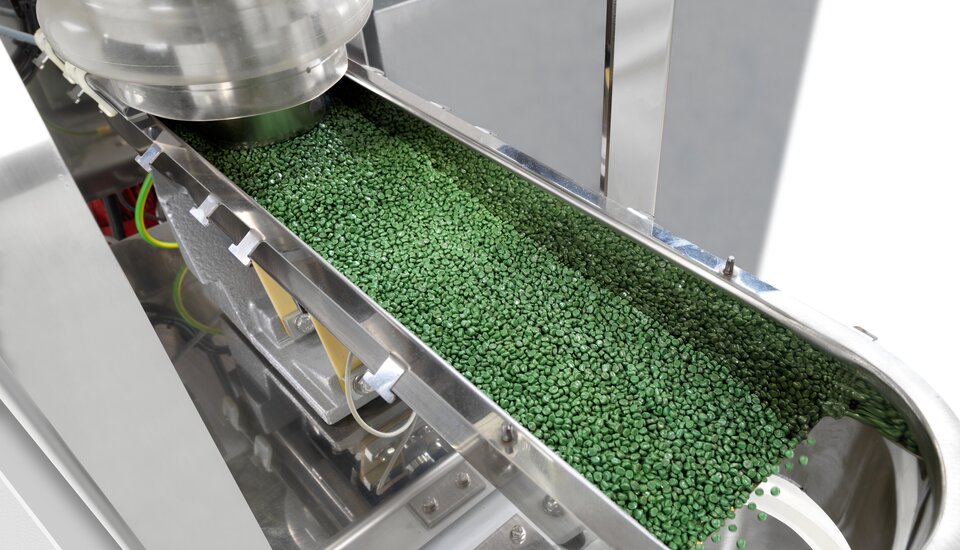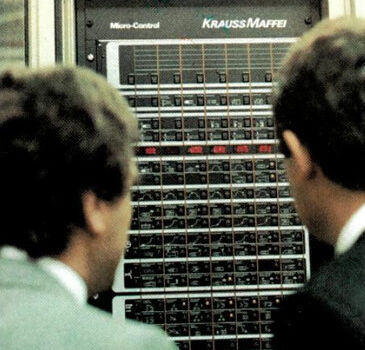
Processes & Products
"In diagnostics, purity and cleanliness always come first"
| KraussMaffei
Interview with Wolfgang Zangerle, Head of Business Development NETSTAL
The production of disposables for medical diagnostics is among the most demanding injection molding applications. Wolfgang Zangerle, Head of Business Development NETSTAL, talks to us about the special challenges that arise during the production of these disposable products as well as recent developments in this field.

Wolfgang Zangerle
Head of Business Development NETSTAL at KraussMaffei
ahead
There has been a lot of talk recently about testing, particularly in the context of the corona-virus. Aside from the COVID-19 respiratory illness, for which no special therapy has been de-veloped yet, please talk about the detection of illnesses in the medical sector as opposed to treatment.
Wolfgang Zangerle
The area of diagnostics is indispensable in today's medical sector. What do you treat if there is nothing for you to analyze? Our products help the field's leading manufacturers produce items like blood collection tubes, pipette tips, vials, tubes and plates. These products, the so-called disposables, are now made of plastic. They are single-use items that have to meet the highest standards. Two customers that produce the disposables for the new coronavirus quick test from Roche are currently using NETSTAL machines.
ahead
In addition to high productivity, what are the main requirements in this very demanding seg-ment?
Zangerle
In diagnostics, purity and cleanliness always come first. For example, the items have to be absolutely free of RNA and DNA when used for genetic testing, for example PCR (polymerase chain reaction) testing for the coronavirus. For us, this means that we have to ensure that it is very easy to clean the machine and the entire plant. All surfaces have to be designed in a way that prevents germs from forming as much as possible, which means that we also have to select inert materials. Not taking into account any of these things could lead to the contamination of the disposable and, ultimately, an incorrect or delayed test result or, even worse, the incorrect treatment of a patient.

NETSTAL ELION MED
With the numerous options of the MED kit, manufacturers can have their machines individually equipped up to clean room class ISO 5
ahead
How has the field of diagnostics developed in recent years and how has that changed the re-quirements of injection molding machines?
Zangerle
Disposables for analytics keep getting smaller since modern testing methods only require small samples. This means that we have to build machines that, on the one hand, deliver top precision and on the other hand, offer a performance that allows for the controlled injection molding of products that keep getting thinner. Not only that, but these machines also have to produce large quantities of them while meeting a zero-fault requirement. It's a classic field for our NETSTAL ELION series, which does all of the above.






ahead
To laypersons, the small and often transparent plastic parts do not look all that complicated. What is the special challenge in the production of these articles, which are needed in huge quantities?
Zangerle
The perfect processing of today's medical grade polymers is essential for the completely reliable functionality of disposables. As a machine builder, we have to – and are able to – offer plasticizing units that allow for the polymer to be strained as little as possible (material degradation) while offering the maximum level of homogenization. One example, in particular in the area of PCR analysis, is the optical analysis of the light emission that passes through the disposable and the highly doped lysis and is crucial for an accurate result. This would not be possible without perfect homogenization, dispersion and without preventing material degradation.















